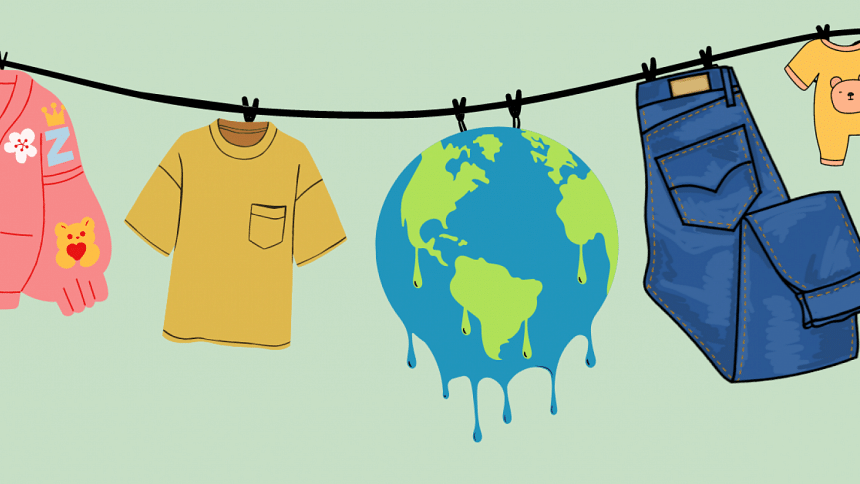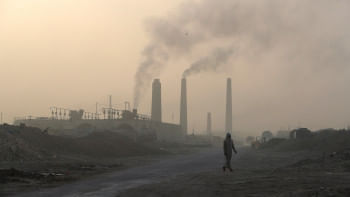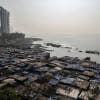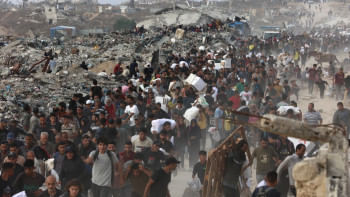Bangladesh's struggle with GHG emissions in textile and RMG

Bangladesh's ready-made garment (RMG) sector contributes 15.4 percent of the country's greenhouse gas (GHG) emissions while the textile sector emits 12.4 percent, leading in carbon emissions and posing a challenge to achieving GHG reduction targets set in the Paris Agreement. On the other hand, despite contributing significantly to the GDP, these industries suffer from operational inefficiency, exacerbated by the use of outdated machinery and ineffective energy management.
The surge in industrial energy intensity raises concerns, casting a shadow over Bangladesh's ability to manage escalating energy demands while meeting its GHG emission reduction commitments. Textile and RMG manufacturers grapple with insufficient financial incentives, a shortage of technical expertise, and an absence of an enabling environment, which hinder energy-efficient practices.
Failure to overcome these barriers jeopardises Bangladesh's nationally determined contributions (NDC). The updated NDC commits to a 6.73 percent GHG reduction in the unconditional scenario and an additional 15.12 percent reduction in the conditional scenario with international support by 2030.
The textile and RMG industries in Bangladesh exhibit high energy intensity. Inefficient production processes and limited natural resource supply significantly contribute to elevated energy consumption, resulting in heightened CO2 emissions. The adoption of energy-efficient technologies poses a substantial financial hurdle for many enterprises. Additionally, Bangladesh heavily depends on fossil fuels such as coal and natural gas for its energy mix. This reliance on non-renewables accentuates the industries' carbon footprint. Furthermore, these industries generate significant volumes of waste, encompassing chemicals and by-products from dyeing and finishing processes. Inadequate waste management practices amplify environmental pollution, placing additional strain on the ecosystem. Finally, the industry's notable contribution to water pollution arises from the discharge of untreated waste into water bodies, posing risks to both the environment and human health.
In response, Bangladesh Bank introduced the Program to Support Safety Retrofits and Environmental Upgrades in the Bangladeshi Ready-Made Garment (RMG) Sector Project (SREUP) in 2018. With 64.29 million euros in consortium support, this project has extended credit fund support to 23 factories and granted investment fund support to seven factories.
One such success story is Snowtex Outerwear Ltd, whose factory achieved significant reduction in light energy consumption, decrease in carbon footprint, and savings in machine energy usage. This case emphasises the broader potential for positive transformation within the industry through strategic interventions and collaboration.
Beyond Bangladesh, success stories from Welspun India and Mavi in Turkey showcase proactive sustainability integration in the textile industry. Welspun India prioritises sustainability through advanced water management, solar power integration, and responsible raw material sourcing. The company's commitment extends to sustainable farming practices, ensuring environmental and social well-being in its supply chain, showcasing how major players can actively contribute to environmental conservation, reduce carbon footprints, and champion ethical business practices.
Mavi, a well-known Turkish denim and apparel brand, has been actively involved in sustainable practices within the RMG industry, showing a commitment to using organic cotton and recycled materials into its manufacturing processes, reducing the environmental impact of raw material production.
As Bangladesh endeavours to harmonise economic growth with environmental responsibility, key steps include incentivising energy-efficient initiatives, nurturing technical expertise, and formulating policies that champion sustainable practices. This would involve encouraging textile and RMG manufacturers to embrace energy-efficient practices through a comprehensive incentive system comprising tax breaks, subsidies, or financial benefits, igniting motivation for investments in energy-saving technologies.
To address the shortage of technical expertise, the establishment of training programmes and partnerships within the textile and RMG sectors can be a strategic move. Collaborating with educational institutions and industry experts to craft specialised courses and workshops will also be pivotal. The development and implementation of a robust policy framework are imperative, setting clear environmental standards, offering guidelines for energy-efficient processes, and enforcing compliance to ensure businesses adhere to sustainable practices.
Facilitating collaborative efforts between the public and private sectors should urge dialogue and partnerships that unite government agencies, businesses, and non-governmental organisations. This can help both sectors address challenges, share best practices, and collectively work towards shared sustainability goals.
Lastly, an independent body should be set up and tasked with regularly assessing and reporting on the environmental impact of the textile and RMG industries. By weaving sustainability into their fabric, these industries can stitch together a narrative of resilience, meeting global standards not merely as an obligation but as a promise to the communities they call home. In each conscientious choice, they can thread a tapestry of hope, leaving an indelible mark that resonates not only with the industries but with the very soul of our shared future.
Growth is crucial, but it should never come at the expense of the environment and human life.
Erica Shuvra Halder is a private sector expert, currently working with SREUP project in Bangladesh.
Mohammed Norul Alam Raju is a development practitioner and currently studying development policy and management in Belgium.
They can be reached at [email protected]
Views expressed in this article are the author's own.
Follow The Daily Star Opinion on Facebook for the latest opinions, commentaries and analyses by experts and professionals. To contribute your article or letter to The Daily Star Opinion, see our guidelines for submission.

 For all latest news, follow The Daily Star's Google News channel.
For all latest news, follow The Daily Star's Google News channel. 











Comments